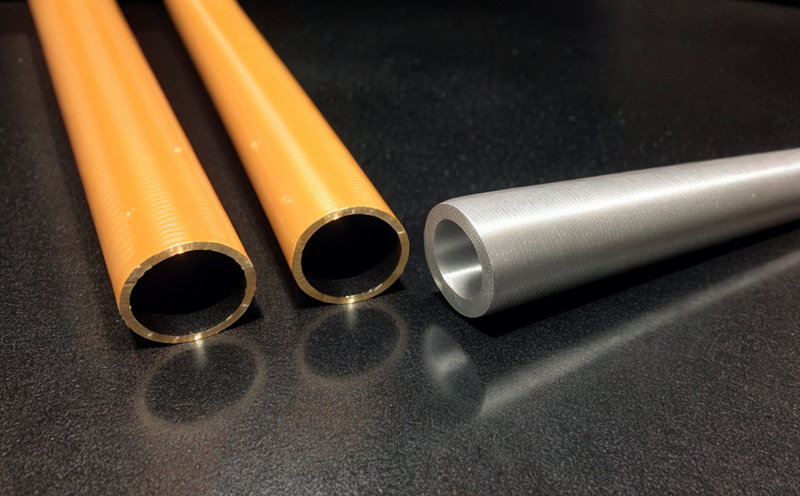ISO 16241 Torsional Properties Testing of Composites
The ISO 16241 standard provides a robust framework to accurately determine the torsional stiffness and strength properties of composite materials. This testing method is particularly important in aerospace & aviation, where lightweight yet strong materials are crucial for structural integrity and performance optimization.
In this test, specimens made from various composites undergo torque application until failure or a predefined criterion is met. The data collected helps engineers understand the behavior of these materials under torsional stress, which is essential for designing safe and efficient aircraft components.
The process involves precise specimen preparation, including standardization of dimensions according to ISO 16241 guidelines. Specimens are then clamped into a specialized fixture designed to apply torque while monitoring strain using high-precision strain gauges or displacement sensors. The test setup ensures that the loading conditions closely mimic real-world scenarios.
The testing apparatus typically includes a servo-hydraulic machine with an appropriate load capacity and speed range, ensuring accurate measurement of stress-strain relationships throughout the torsional loading cycle. Post-test analysis involves detailed examination of specimen failure modes to assess material quality and structural integrity.
Our team at Eurolab is well-versed in this methodology, employing state-of-the-art equipment and adhering strictly to international standards such as ISO 16241. This ensures accurate results that are reliable and repeatable, providing valuable insights into composite performance under torsional loads.
In aerospace & aviation applications, the ability to predict how materials will behave in extreme conditions is critical. By understanding the torsional properties of composites through rigorous testing, manufacturers can make informed decisions about material selection and design optimization.
Benefits
- Precise measurement of composite torsional stiffness and strength.
- Enhanced safety and reliability in aircraft structures.
- Informed decision-making for material selection and design optimization.
- Compliance with international standards ensuring quality assurance.
- Accurate prediction of performance under real-world conditions.
- Supports continuous improvement through detailed failure analysis.
Eurolab Advantages
At Eurolab, we pride ourselves on delivering top-tier testing services tailored to meet the stringent requirements of the aerospace & aviation sector. Our advanced facilities and experienced personnel ensure that every test is conducted with precision and accuracy.
- Pioneers in composite materials testing with cutting-edge equipment.
- Experienced technicians who understand the nuances of ISO 16241.
- Dedicated to providing timely, accurate reports backed by comprehensive data.
- Committed to maintaining strict adherence to international standards and best practices.
We also offer additional support services such as consultation on material selection, analysis of test results, and recommendations for process improvements. Our comprehensive approach ensures that our clients receive not just test results but actionable insights into their materials' performance.
Environmental and Sustainability Contributions
The aerospace & aviation industry plays a vital role in reducing environmental impact through the use of lightweight, high-strength composite materials. By accurately determining torsional properties, we contribute to the development of more efficient aircraft designs that consume less fuel while maintaining structural integrity.
Our testing services help manufacturers ensure that their products meet stringent safety and performance criteria without compromising on sustainability goals. This aligns with broader efforts towards reducing carbon footprints in transportation sectors globally.
The accurate determination of torsional properties through ISO 16241 ensures that materials used in aircraft are not only safe but also optimized for weight reduction, which indirectly contributes to lower emissions and greener operations. By supporting the development of more efficient and sustainable aerospace solutions, we play an essential part in fostering a cleaner future.





